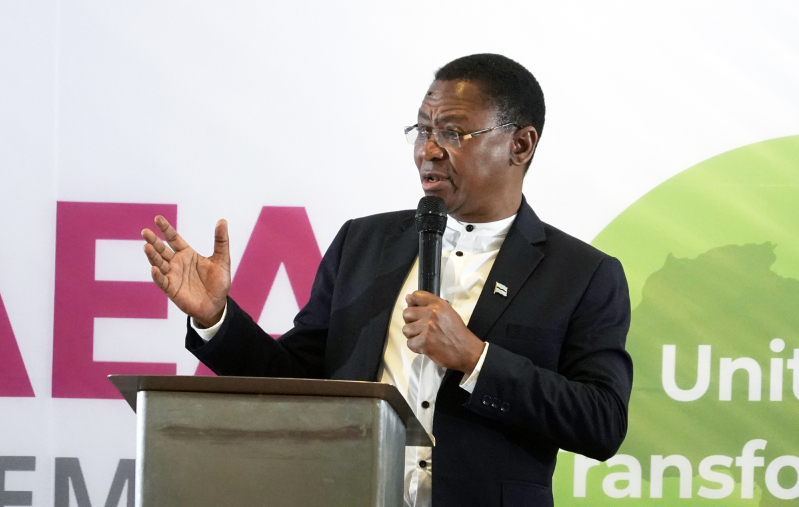
The 13th General Assembly of the Association of Evangelicals in Africa (AEA) concluded Friday evening, May 23, with a passionate call for unity and a shared vision for a transformed Africa. The event, which brought together around 150 evangelical leaders from across the continent and global partners, closed with remarks from Dr. Master Matlhaope, Secretary General of the AEA.
Held under the theme “Unity for Transformation in Africa,” the three-day assembly convened at the Ole Sereni in Nairobi and featured a range of sessions addressing theological education, youth engagement, political witness, and the need for stronger collaboration among national evangelical fellowships, among others.
In his closing address, Dr. Matlhaope urged delegates to return to their respective countries as agents of unity and transformation. He emphasized that disunity remains one of the primary obstacles to Africa’s flourishing, describing it as “the enemy’s weapon to keep us weak and poor.”
“The unity of the Church, regardless of geography, tribe, or color, is key to the transformation of Africa,” Matlhaope said. “United we stand, divided we fall.”
Drawing on the African Union’s 50-year development plan, Agenda 2063, Matlhaope contrasted the AU’s vision of “the Africa we want” with what he described as “the Africa God wants”—a continent where integrity, justice, and hope guide leadership and public life.
“We must see beyond our present challenges and embrace the bigness of God’s vision for Africa,” he said. “Let us build an Africa where hope triumphs over despair, where unity overcomes division, and where prosperity is the inheritance of every generation.”
While acknowledging Africa’s vast resources and youthful population, Matlhaope cautioned against assuming that demographic trends alone would yield a better future. “A youth bulge is not automatically a youth dividend,” he warned. “If we fail to equip and empower our young people, we will pay the price,” he said, echoing comments he made in an exclusive interview with Christian Daily International last month.
In response to the demographic realities, Matlhaope announced plans to reposition youth engagement as a central pillar in the AEA’s upcoming five-year strategic plan. Moving away from previous models that grouped youth ministry with other departments, he said the new approach would treat young people as “a mission force, not just a mission field.”
“The youth are the natives of the present and the future,” he said. “They are digital natives, agile, and innovative. While they need the wisdom and theological grounding of the older generation, we must not continue to relegate them to the margins.”
Referencing biblical examples such as Moses and Joshua, Paul and Timothy, and Jesus and his disciples, Matlhaope underscored the importance of intergenerational leadership transitions. “Someone took a chance on us when we were young. Now it’s our turn,” he said.
Matlhaope’s address included sobering statistics about Africa’s socio-economic challenges. Nearly half of the world’s people living in extreme poverty are in Africa, with projections showing that by 2030, 90 percent of the world’s poorest will be on the continent. He cited widespread youth unemployment, health crises, and corruption as ongoing barriers to transformation.
He also warned of a possible decline in Western aid and influence, noting recent U.S. funding cuts and a global shift in donor priorities. In light of this, he said, Africa must increasingly depend on “its own ingenuity, resources, and unity” to shape its future.
“Our continent is not poor,” Matlhaope declared. “Africa holds 65 percent of the world’s arable land and 30 percent of global mineral reserves. If managed well, these can lead to unprecedented prosperity.”
Looking ahead, the AEA secretary general invited stakeholders to collaborate in drafting the association’s next five-year strategic plan, signaling the need for urgency and collective ownership. Comments and insights shared during the assembly, he said, were being recorded and would serve as reference material for shaping the new plan.
“We are part of something much bigger than ourselves,” Matlhaope said in closing. “Let us go back to our nations and enforce the unity of the Church and the unity of Africa. The Africa God wants is within reach—if we stand together.”






